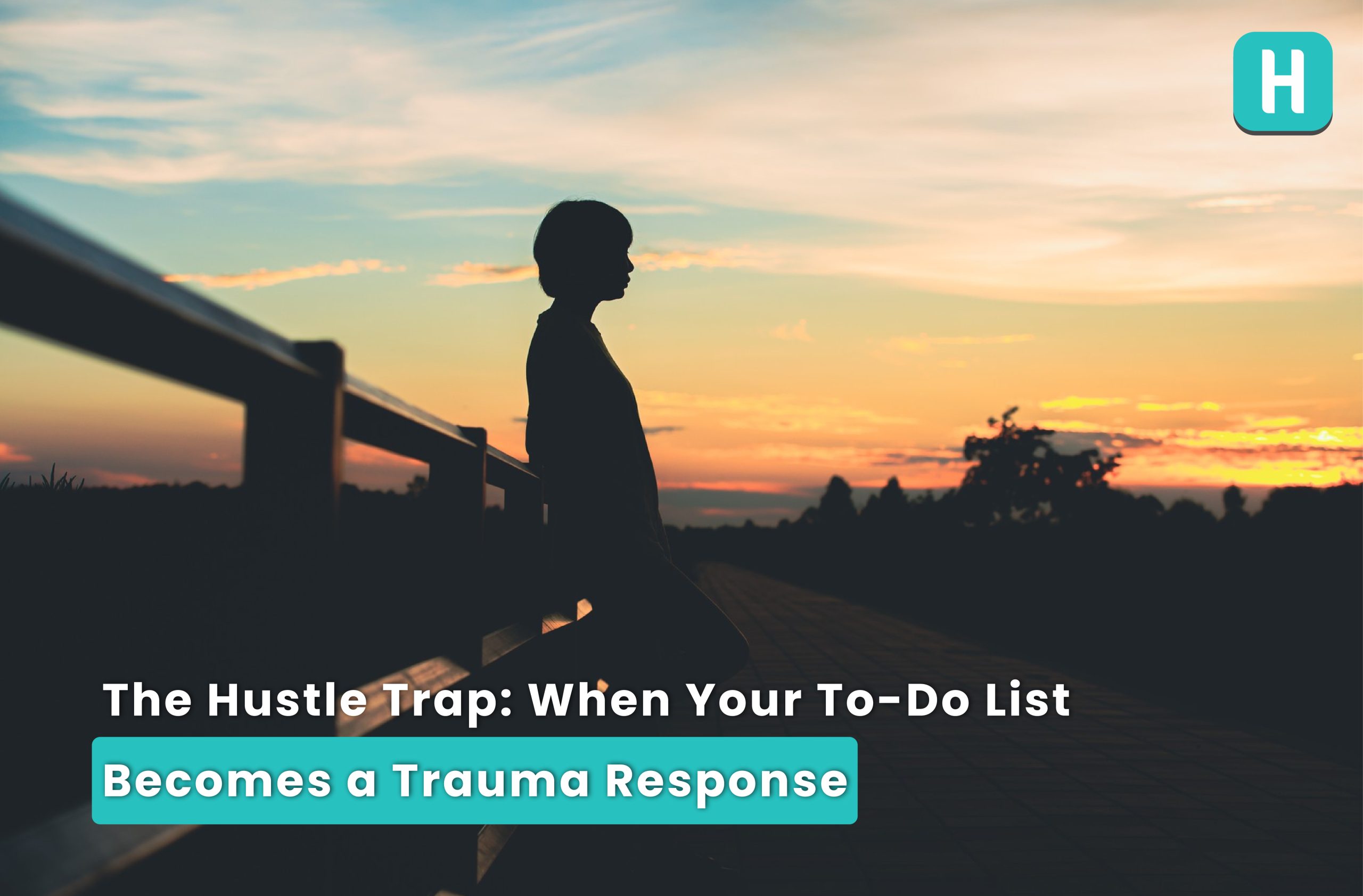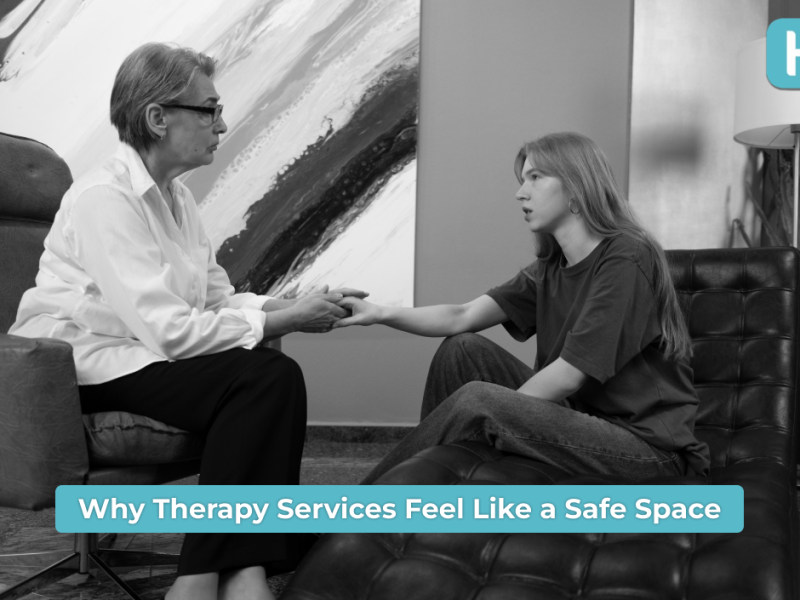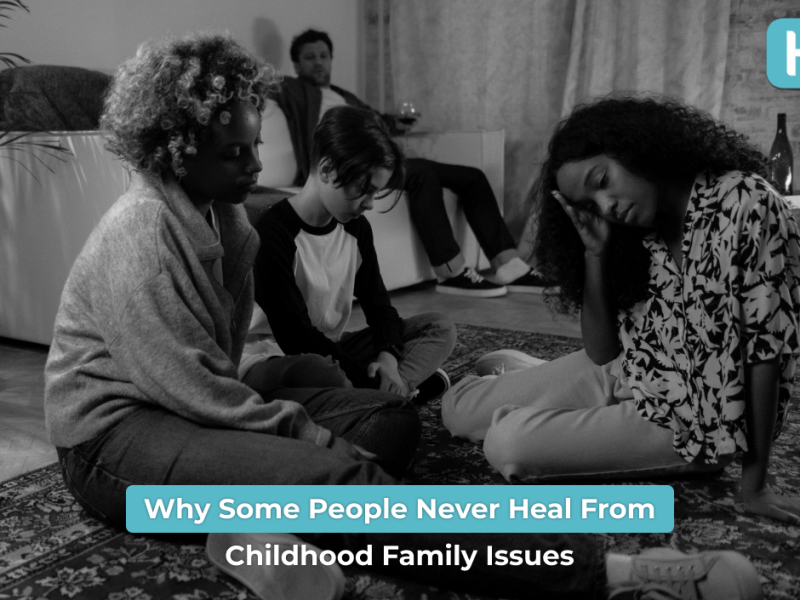The Hustle Trap: When Your To-Do List Becomes a Trauma Response
You wake up, heart racing before your feet even hit the floor.
Your mind’s already spinning through deadlines, goals, emails.
No time to breathe.
No space to rest.
Because if you stop, everything might fall apart.
Sound familiar?
Welcome to the Hustle Trap.
“I Can’t Rest. I Don’t Deserve It Yet.”
This isn’t just ambition. It’s survival.
We glorify “hustle culture”—early mornings, late nights, the badge of busy. But what if your drive to always do more isn’t just productivity… what if it’s pain wearing a productivity mask?
A 2022 study by the World Health Organization showed that overworking contributes to over 745,000 deaths globally each year, mainly due to stroke and heart disease. That’s not success. That’s a silent epidemic.
And the scary part?
Most of us don’t even realize we’re in the trap until we burn out completely.
Hustle Culture: The Badge That Burns You
The internet loves a go-getter.
You see it on LinkedIn. You see it on reels. You see it in “5AM club” posts with captions like “No days off” and “Grind now, shine later.”
But here’s what nobody talks about:
Many people caught in hustle culture aren’t chasing dreams—they’re running from trauma.
From feeling unworthy.
From being told they’re only valuable when they produce.
From environments where love was conditional on performance.
“My dad only praised me when I came first. Now I can’t stop working—even if I’m bleeding inside.”
— Zara, 28, Dubai
That’s not drive. That’s a deep, unhealed wound.
Signs Your Hustle Is a Trauma Response
Not all hustle is bad. But when it’s rooted in fear, guilt, or the inability to rest, it’s a red flag.
Here are some signs you might be caught in the trauma-fueled hustle:
- You feel guilty when you’re not working: Even your downtime feels uncomfortable. Watching Netflix? You’re thinking about emails.
- You tie your worth to productivity:If you didn’t “do enough” today, you feel like a failure.
- You overcommit—then crash: You say yes to everything, then get overwhelmed and spiral into anxiety or depression.
- Rest feels unsafe: You get anxious when you’re “free.” You constantly look for the next task.
You confuse exhaustion with success: You wear your fatigue like a trophy. If you’re not tired, you’re not doing enough.
If even one of these feels true, it’s time to ask: Am I hustling… or am I hurting?
Real Talk: When Trauma Hijacks the To-Do List
Let’s be brutally honest.
For many of us, hustle isn’t about passion—it’s about proving we’re enough.
Let’s take Ahmed, a 35-year-old tech founder in Karachi. He built a startup from scratch. On paper, he was winning. But behind closed doors, he couldn’t sleep. Couldn’t relax. His mind wouldn’t stop.
During therapy, it came out:
His childhood was filled with pressure. A single mistake led to shouting. Affection was given only when he “achieved something.”
He didn’t love work—he feared failure.
That’s the Hustle Trap: when your to-do list becomes a trauma response.
And it’s more common than you think.
How Overworking Impacts Mental Health?
Still think pushing harder is the answer?
Let’s look at what hustle does to your brain and body when it comes from a place of trauma:
- Chronic Stress: Constant cortisol spikes damage your brain, heart, and immune system.
- Burnout: Emotional exhaustion, depersonalization, and lack of accomplishment.
- Disassociation: You might feel emotionally numb, like you’re watching your life, not living it.
- Anxiety & Depression: Studies link overworking with higher rates of clinical depression and suicidal ideation.
- Impaired Decision-Making: Tired brains make poor calls—bad for business and health.
According to The Mental Health Foundation, 74% of people in the UK have felt so stressed at work they’ve been overwhelmed or unable to cope.
That’s not ambition. That’s emotional overload disguised as diligence.

So Why Do We Keep Hustling?
Because trauma doesn’t tell you, “Hey, I’m unresolved.”
It tells you, “Work harder and they’ll love you.”
Many survivors of childhood neglect, emotional abuse, or instability grow up to become high-functioning overachievers.
We feel safe only when we’re in control.
And working nonstop gives us control… until it doesn’t.
The truth is, you can’t outwork pain.
You can only heal it.

How Helply Helps: “You Don’t Need to Burn to Feel Seen”
At Helply, we don’t just address burnout—we dig into why it’s happening.
Whether you’re a young professional, a founder, or a parent juggling too much, we offer:
- Trauma-informed therapists who understand the hustle trap
- Flexible online therapy you can do from home, even on your busiest days
- Culturally sensitive counseling for South Asians, Muslims, and first-gen professionals
- Affordable plans—because healing shouldn’t be a luxury
What Healing Looks Like (Hint: It’s Not a Bubble Bath)
Real healing is messy.
- It looks like crying in your car because you finally admitted, “I’m not okay.”
- It’s canceling a meeting because your mental health matters more than optics.
- It’s saying “no” without justifying it.
- It’s unlearning that being “busy” equals being valuable.
And it’s slowly allowing yourself to believe that…
You. Are. Enough.
Even when you’re resting.
Even when your checklist is empty.
Palwasha’s Story: From Burnout to Breakthrough
Two months ago, Palwasha, a 32-year-old marketing lead in Lahore, hit a wall.
She was overwhelmed with anxiety, burnout, and the toxic work culture she had been silently enduring for years.
“I was done with the scams, fake promises, and unprofessionalism we call ‘normal,’” she shared.
She disappeared from LinkedIn—and people noticed.
That’s when a friend told her about Helply, an online mental health platform.
She booked a session.
“It was the best decision I made this year.
It changed my mindset, helped me process years of stress, and reminded me—I deserve better. We all do.”
Palwasha’s message is clear:
Mental health is not a luxury. It’s a necessity.
And sometimes, a little help is all it takes to start healing.
You’re Not Lazy—You’re Tired of Carrying Everything
Let’s stop glorifying exhaustion.
Let’s stop mistaking anxiety for ambition.
Let’s start asking better questions:
“Why can’t I rest?”
“Why do I feel unsafe doing nothing?”
“What am I trying to prove—and to whom?”
You’re not behind.
You’re not broken.
You’re just healing.
And maybe it’s time to put down the to-do list—and pick up your life.
FAQs
Q1: How do I know if my productivity is trauma-based?
If you feel anxious when not working, or if your worth feels tied to your output, it’s likely rooted in trauma. A therapist can help uncover the source.
Q2: Can trauma really cause overworking?
Yes. Many trauma survivors overachieve to gain control, earn love, or escape inner chaos. It’s a coping mechanism that eventually breaks down.
Q3: What’s the first step to healing from hustle trauma?
Awareness. Acknowledge the pattern. Then, seek support—whether through therapy, support groups, or setting small boundaries.
Q4: Isn’t hustle necessary in early career stages?
Some effort is natural—but sustainable success comes from balance. Constant burnout reduces creativity, health, and long-term performance.
Q5: Can Helply help me even if I’m not “clinically depressed”?
Absolutely. You don’t have to be broken to ask for help. Helply supports people through stress, trauma responses, burnout, and emotional fatigue.


